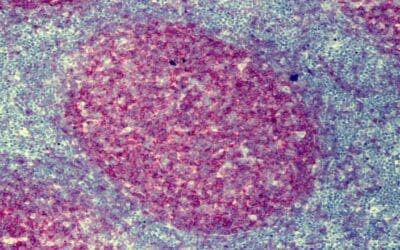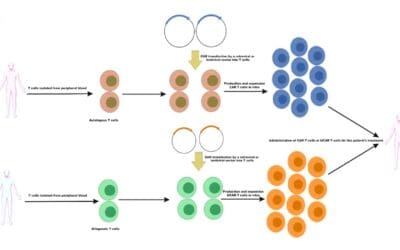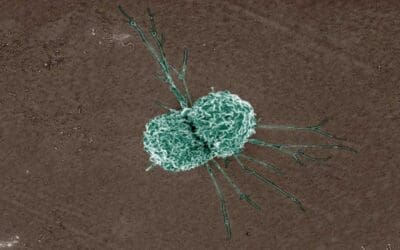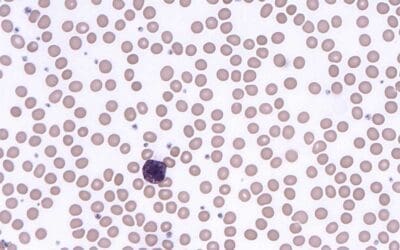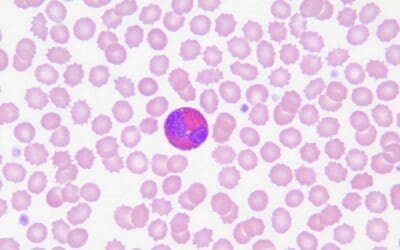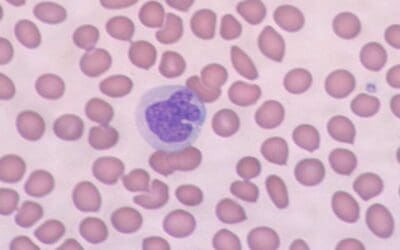Lymphocytosis: High lymphocyte count. It can be a harmless immune response or signal serious conditions like leukemia.
Leukopenia (Low White Cell Count)
Leukopenia: Low white blood cell count, weakening immunity. Learn about causes, symptoms, diagnosis, and management of this condition.
Lymphadenopathy
Lymphadenopathy explained: Learn about swollen lymph nodes, their common causes (infections, inflammation, cancer), key symptoms, diagnostic tests (blood work, biopsy), and available treatment options. Understand when swollen glands are a cause for concern.

Causes of Atypical Lymphocytes (Reactive Lymphocytes)
Atypical lymphocytes are activated immune cells, often seen in infections. Their unique look aids diagnosis, but distinguishing it from cancer is important.

Hypersensitivity Reactions: Causes and Mechanisms
Hypersensitivity is an exaggerated, undesirable immune response to an antigen, causing tissue damage. It encompasses four types: IgE-mediated (allergies), cytotoxic, immune complex, and delayed cell-mediated reactions.
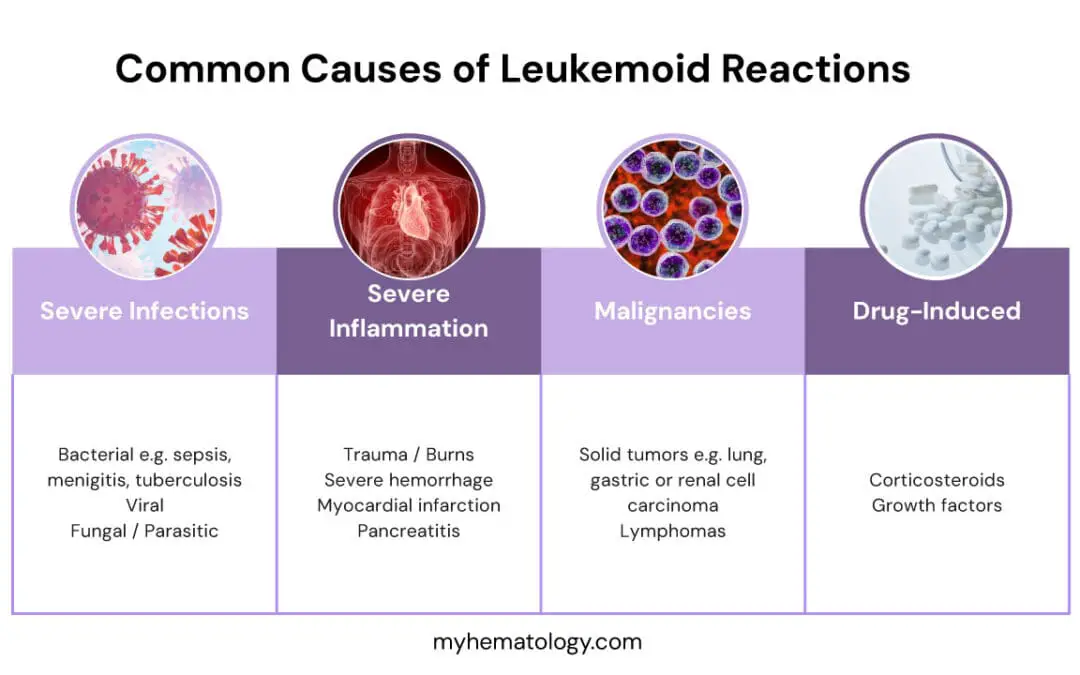
Leukemoid Reaction
Leukemoid reaction is a benign, reactive process with elevated LAP & no Philadelphia chromosome, unlike malignant CML.
Follicular Lymphoma
Follicular lymphoma is a type of slow-growing blood cancer affecting B-cells. Learn about its symptoms, causes, diagnosis, treatment, and prognosis.
CAR T-Cell Treatment
CAR T-cell therapy is a revolutionary cancer treatment using engineered T-cells to target and destroy cancer cells.
Macrophage
Macrophages are essential immune cells that engulf and digest foreign particles, playing a crucial role in inflammation and tissue repair. They are found throughout the body and are involved in various diseases, including infections and cancer.
Basophils
Basophils are white blood cells that play a crucial role in allergic reactions and inflammation. They release histamine and other mediators, contributing to symptoms like sneezing, runny nose, and hives. Elevated basophil counts can be associated with certain conditions, such as asthma and chronic myeloid leukemia.
Eosinophils
Eosinophils are white blood cells that play a crucial role in the immune system. They are involved in fighting parasites, allergic reactions, and tissue repair. Elevated eosinophil counts can be a sign of various conditions, including parasitic infections and allergic diseases.
Monocytes
Monocytes are large white blood cells that play a crucial role in the immune system. They are responsible for phagocytosis, antigen presentation, and inflammation. Elevated or decreased monocyte counts can be indicative of various diseases.

